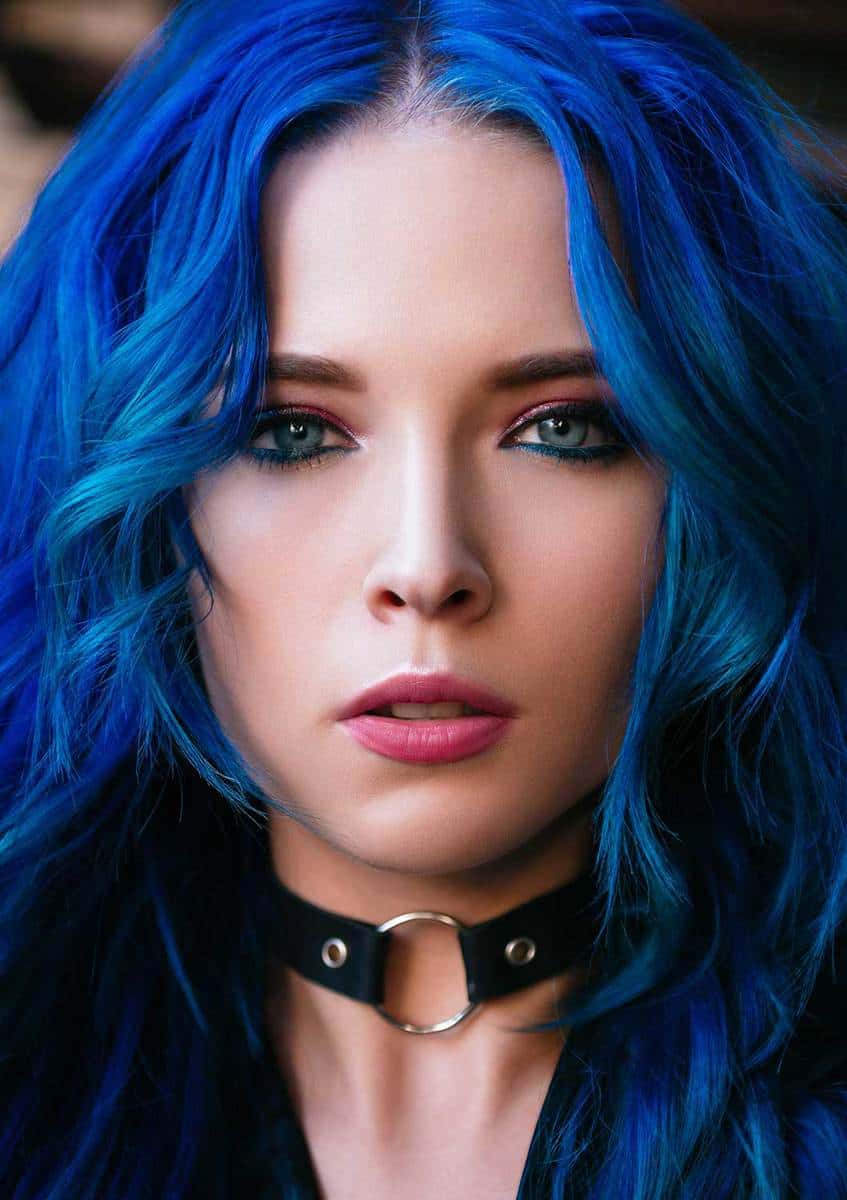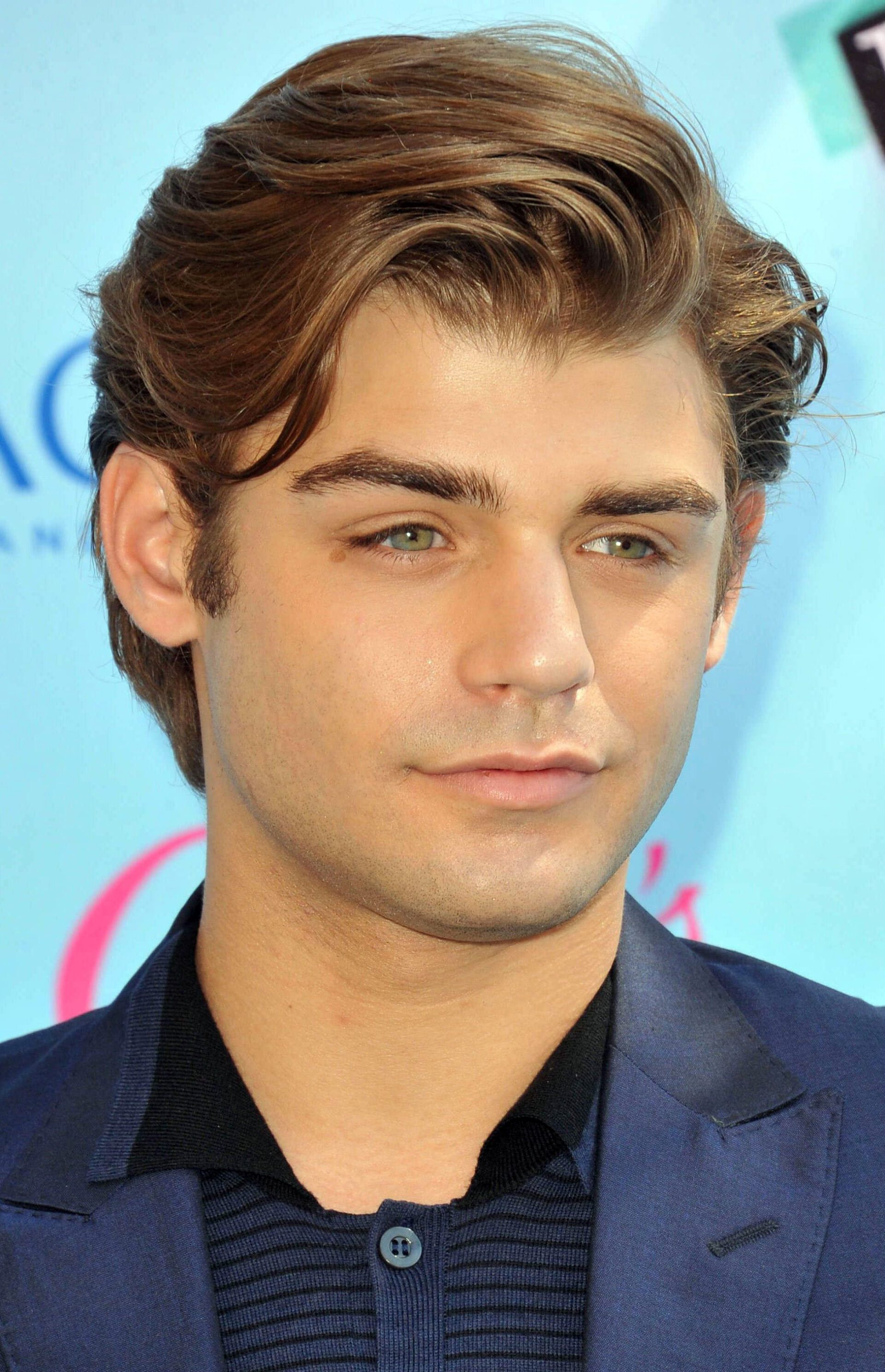Table Of Content

So when she cut it off, that was also symbolically the period in which she and Brad could no longer connect. And now the addressee has moved on to date “a boy who acts his age”, i.e. a likeminded individual who would agree that rockin’ blue hair is a no-go. The third verse introduces a vivid image of the girl’s hair being compared to cotton candy – something fleeting and easily consumed. It ends with the news that she is now living with someone who acts his age, hinting at her search for stability and maturity. The upbeat rhythm and melodic tempo of 'Blue Hair' juxtapose its somber themes, creating a bittersweet atmosphere that mirrors the emotional complexity of growing up and moving on.
Meaning of Blue Hair by TV Girl
The lyrics of “Blue Hair” reflect this growth as they tackle meaningful topics through a tongue-in-cheek lens. Today, I want to talk about a song that holds a special place in my heart – “Blue Hair” by TV Girl. I first stumbled upon this gem during a late-night hangout with friends, and I was immediately captivated by its catchy melodies and thought-provoking lyrics. Growth, an overarching theme of the song, is often synonymous with pain, the kind that comes from severing parts of our past. ‘And I tried to hold her / But it didn’t really last long,’ captures the essence of trying to keep things constant when every fiber of the universe is in flux.
The Meaning Behind The Song: Blue Hair by TV Girl
This can be interpreted as a commentary on how perceptions of ourselves and others can change under different circumstances, highlighting the ephemeral nature of our youthful personas. As the song progresses, the narrative deepens with “She’s getting older/I guess she’s gotta cut her blue hair off.” This line is poignant, symbolizing the loss of innocence and the societal pressures to conform. The blue hair, once a symbol of individuality and youth, becomes something to be shed as one grows older. At the heart of 'Blue Hair' lies the story of a relationship strained by personal growth and the inevitable passage of time. The song masterfully juxtaposes the innocence and vibrancy of youth with the somber realities that accompany maturing, using the metaphor of blue-dyed hair to symbolize these themes. “Blue Hair” by TV Girl is a song that beautifully captures the complexities of relationships, personal growth, and societal expectations.
TV Girl’s “Blue Hair” Lyrics Meaning
"Brown Skin Girl" Lyrics, Decoded: Beyonce, Blue Ivy Song Meaning - Oprah Mag
"Brown Skin Girl" Lyrics, Decoded: Beyonce, Blue Ivy Song Meaning.
Posted: Mon, 29 Jul 2019 07:00:00 GMT [source]
Just like the color of the hair appears different in varying lights, our perception of ourselves and others can change over time. This line subtly conveys the idea of losing one’s identity or having it misunderstood by others. This is actually the most-complex part of the song, but we will take liberty in attempting to explain it nonetheless.
Genius is the world’s biggest collection of song lyrics and musical knowledge
Ultimately, ‘Blue Hair’ is an anthem of acceptance, a melodic embrace of the inescapable tide of change that sweeps us all. TV Girl constructs a musical narrative that not only acknowledges the pain of transformation but also hints at the freedom that comes with the letting go. The tune unfolds a story that is ostensibly simple, yet laden with a subtext that speaks to the human condition—the struggle with identity, the impermanent nature of beauty, and the pangs of growing up. Let’s delve into the multilayered musings of ‘Blue Hair’ to unearth the poignant message braided into its melody. According to Adam Henderson’s review on the website And the Valley Shook, TV Girl’s Death of a Party Girl showcases the band’s growth in their songwriting.
This song captures the zeitgeist of a generation grappling with the concepts of identity, growth, and the impact of societal expectations. Since its release, the song has continued to resonate with audiences, reflecting the universal experiences of change and the process of self-discovery. The chorus captures a moment of transition, acknowledging the partner's aging and the need to cut off her blue hair—which symbolizes letting go of her youthful, attention-seeking behaviors. This act of cutting off the blue hair is a poignant metaphor for personal growth and the pain of leaving a part of oneself behind in order to evolve.
It is a reminder of how quickly things can dissolve before our eyes, leaving us to cling to their saccharine aftertaste. TV Girl’s ability to weave such profound themes into their music is what makes “Blue Hair” a standout song. It not only entertains us with catchy melodies but also invites us to reflect on our own journeys of self-discovery and growth.
In other words, “getting older” and “cut(tin) her blue hair off” almost marked the clear point that their romance deteriorated. The album, like many of the band’s previous works, explores themes of love, heartbreak, and growth. It demonstrates the band’s evolution as they navigate the complexities of human relationships and emotions. The song resonates with nostalgia and the pain of watching someone you care about grow up and away.
The ‘nothing’ is in fact a placeholder for the profound complex changes she’s going through, which others may not see or understand. So with him deciding not to confront the matter, i.e. entertaining her negative self-image, she, already being psychologically affected, takes that as some sort of an insult. With a release date of 8 May 2018, “Blue Hair” is from TV Girl’s third standard LP, “Death of a Party Girl”. The song was written by Brad Petering, and it has been suggested that the track samples “The Minx”, a 1970 tune by a 1960s’ band known as The Cyrkle. TV Girl is yet another musical act whose stage name is an act of misdirection, in that the members of the band – frontman Brad Petering buttressed by keyboardist Wyatt Harmon and drummer Jason Wyman – are all guys.

In the second verse, the narrator reflects on the girl’s insecurities, noting that society tends to label her as a “dumb blonde” despite her efforts to prove otherwise. This verse highlights the pressure that society places on individuals to conform to certain ideals of beauty and intelligence. “Blue Hair” is a story wrapped in melody, a journey through youthful innocence and the harsh realities of growing up.
It explores the struggle of being authentic in a world that often expects people to fit into predefined molds. The song challenges the notion of beauty and identity, reminding us that our worth should not be determined by our appearance or conformity to societal norms. At a surface level, “Blue Hair” seems to be a song about a girl changing her appearance and the impact it has on her relationship. However, TV Girl masterfully incorporates deeper themes of self-discovery, societal expectations, and emotional growth. The final chorus reflects upon the changes that have ensued since the girl cut her blue hair, even though she’s physically still present.

Joanna holds a BSc in English Literature and uses her expertise in literary analysis to uncover the deeper meaning of her favorite songs. As the final strands of blue are relinquished, and with them the trappings of a bygone era, what is left is more than a reflection on loss—it is a celebration of the complexities and growth that shape and refine us. In that, ‘Blue Hair’ stands as a delicate tribute to the endless cycle of becoming and unbecoming, which composes the very heart of our existence. Nostalgia paints our memories with a romantic filter, and TV Girl capitalizes on this through the reminiscing nature of the song. ‘I guess I’ll just miss her’ touches upon the tendency to mourn the past versions of ourselves and others, even when the essence remains intact. Furthermore, ‘And she cried over nothing’ subtly addresses the vastness of emotional experiences that are often dismissed.
L.A. indie-pop darling TV Girl brings new album to Crowbar in Tampa's Ybor City - Creative Loafing Tampa
L.A. indie-pop darling TV Girl brings new album to Crowbar in Tampa's Ybor City.
Posted: Thu, 14 Jun 2018 07:00:00 GMT [source]
The writer seems to be grappling with the inevitability of change, both in themselves and others. It’s a universal theme that many can relate to – the struggle to hold onto the past while accepting the future. The lyric “What seemed so blue in the sunlight/By the night was a pale green” is a powerful metaphor for change and perception.
Through nuanced lyrics, the songwriter delves into themes of appearance, acceptance, and the bittersweet nature of change. This is not just a song about a girl with blue hair; it’s a narrative on the universal experience of growing up and the inevitable loss of innocence. This song paints a vivid picture of a young woman grappling with her identity and societal expectations.

No comments:
Post a Comment